Conscious Caring A Compassionate Approach
to Care
 People
come into the healthcare professions because they care and want to make a
difference. Pressure from modern
healthcare organisation (technology, compliance, litigation, recording) means
that people in the caring professions get stressed out. They get so caught up in non-caring duties
they forget why they came into the work.
People
come into the healthcare professions because they care and want to make a
difference. Pressure from modern
healthcare organisation (technology, compliance, litigation, recording) means
that people in the caring professions get stressed out. They get so caught up in non-caring duties
they forget why they came into the work.
Conscious Caring
It
often leads to a perceived lack of purpose, and this leads to higher stress
levels. So, what we are trying to do
with Conscious Caring is help people be conscious of what is going on for them
so that they can consciously choose to care, i.e. do what they came into
service to do. They can make the most of
their time with their patients. Time
with patients becomes more precious.
 Conscious
Caring means being present, really connecting with yourself and people around
you. This helps people manage stress,
and be able to step outside their situation and see the bigger picture. So, what we’re wanting to do is give people
some tools to do this so that they can look after themselves and make the most
of their time with patients and colleagues.
So that they are consciously caring and not just going through the
motions.
Conscious
Caring means being present, really connecting with yourself and people around
you. This helps people manage stress,
and be able to step outside their situation and see the bigger picture. So, what we’re wanting to do is give people
some tools to do this so that they can look after themselves and make the most
of their time with patients and colleagues.
So that they are consciously caring and not just going through the
motions.
They
can focus on creating a peaceful, positive working environment with compassion,
connection, reflection and service, and ultimately with love.
Conscious Caring Training Programmes use …
We
would like to talk about how we can develop healthcare workers to consciously
care for themselves, their colleagues, and their patients. The training is based on material from the
Wisborough Conscious Leadership Programmes and Values in Healthcare – a Spiritual
Approach, published by the Janki Foundation and. We’ve used this material in several
healthcare settings, including a psychiatric hospital in London, an
international retreat for medical staff in India, and a group of care homes in
the UK.
Today
we’ll share some examples from recent work in Ireland (a 9 day programme in
Cashel, County Tipperary, and a one day workshop in Limerick).
Why did you come into healthcare?
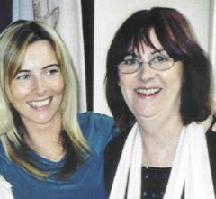 If I were to
ask you – do you remember why you wanted to become a nurse? Do you remember your first year working with
patients? And now, what sustains you in
your work now? When I ask you to
remember you take a moment to reflect and remember all sorts of things about
the past and the present. About what
helps and hinders you. Many different
thoughts and feelings arise. They will
be personal and relevant to each of you.
If I were to
ask you – do you remember why you wanted to become a nurse? Do you remember your first year working with
patients? And now, what sustains you in
your work now? When I ask you to
remember you take a moment to reflect and remember all sorts of things about
the past and the present. About what
helps and hinders you. Many different
thoughts and feelings arise. They will
be personal and relevant to each of you.
There is a lot
of personal reflection and discussion in the Conscious Caring programmes and
very little input. There is a great
emphasis on how we actually do things at work, and there is time for skills
practice. The training is about increasing self-awareness and personal
development. It is made relevant to each
participant. So, how does all this awareness and personal development help?
Stress
Well, as we
said earlier, it seems that most people in healthcare feel overworked and
stressed. The consequence of this stress
and anxiety is that people withdraw to protect themselves. They start to go through the motions without
putting their heart and soul into their work.
And they become exhausted and burn out.
Most people
came into healthcare because they care.
Because they care about people, and they want to care for people. All the stress gets in the way of doing what
they want to do. A senior doctor at a
retreat we ran recently said that he thought junior doctors had forgotten their
altruism by the end of their first year.
What difference does it make? Become more authentic
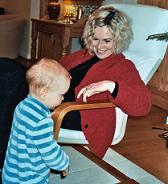 So, one thing
the Conscious Caring programmes do is help people give good patient care as
they manage their situations in a less stressful way. It reminds people why they came into
healthcare, it reminds them that they are good people. It puts them in touch with themselves
again. This means that they can express
their qualities, such as empathy, gentleness, compassion, and
authenticity. They can begin to have the
confidence to express their humanity and have self regard. They can feel empowered to do what they
believe to be right.
So, one thing
the Conscious Caring programmes do is help people give good patient care as
they manage their situations in a less stressful way. It reminds people why they came into
healthcare, it reminds them that they are good people. It puts them in touch with themselves
again. This means that they can express
their qualities, such as empathy, gentleness, compassion, and
authenticity. They can begin to have the
confidence to express their humanity and have self regard. They can feel empowered to do what they
believe to be right.
Here are some actions from a day in Milford Centre – a hospice and care home for
elderly people – in Limerick
As a
result of today I am going to:
- Be kinder to myself so that I can be
kinder to others
· - Think about things that have gone well,
and why
· - Make an effort to affirm others
· - Be more honest
· - Be more supportive and understanding, and
less judgemental
· - Engage more productively and positively
with clients and colleagues
· - Be more positive, dispel negative talk,
engage and listen more
· - Be more pro-active in self care. Set aside 10 minutes in the evening before
leaving work to do a simple meditation – leaving worries behind
· - More conscious of creating time for myself
· - Look at situations differently and
promoting teamwork and supporting colleagues.
· - Reflect on past situations to improve
future ones.
· - Be positive
Changing the View
 Janice Clarke
says that when we are ill we feel fragmented.
The way a nurse cares for patients can help give them a sense of self
and a belief that they can be whole. This happens when the nurse is able to
connect with a patient as a fellow human being, rather than from a place of
roles. The Conscious Caring Programmes
give people permission to be human first and roles second, so that, in turn,
patients can feel stronger, less fragmented, and more valued. The nurse can remind us of our own
humanity.
Janice Clarke
says that when we are ill we feel fragmented.
The way a nurse cares for patients can help give them a sense of self
and a belief that they can be whole. This happens when the nurse is able to
connect with a patient as a fellow human being, rather than from a place of
roles. The Conscious Caring Programmes
give people permission to be human first and roles second, so that, in turn,
patients can feel stronger, less fragmented, and more valued. The nurse can remind us of our own
humanity.
Changing the view of self & the
world
Nothing has
changed about the work levels. What has
changed is how the work is felt, and seen.
Nurses see themselves more positively.
They are more hopeful, more courageous.
This helps the patient feel more positive, more hopeful. It gives them courage too.
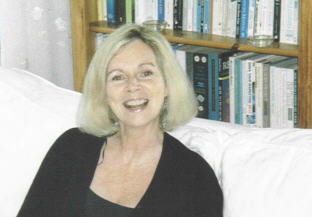 The process
helps change the view of self and the world, and then people are able to be,
and do things differently because of that change of perception. People remember what’s important and who they
really are. They want to come into work
and connect with colleagues and patients in a different way. They know that they haven’t got to do more,
they have only got to be who they really are, caring human beings.
The process
helps change the view of self and the world, and then people are able to be,
and do things differently because of that change of perception. People remember what’s important and who they
really are. They want to come into work
and connect with colleagues and patients in a different way. They know that they haven’t got to do more,
they have only got to be who they really are, caring human beings.
Delegates said:
- We had coaxed and encouraged them to explore areas not
often spoken of;
- They realised that ‘Self care’ is different to self
protection; - I think that this is key –
it’s very important
- They don’t
often think about their own spirituality and yet to be aware of it helped
them work with others;
- It’s not an add-on – it’s there all the time – it’s
not just asking “what religion are you?”
- As humans we are
capable of deep connection.
What did we do, and how did we do
it?
Mary
Prendergast from St. Patricks in Cashel wanted a programme that would take a
fresh approach to caring and nurse training.
So, we designed a programme which included material from Values in
Healthcare, and our Wisborough Conscious Leadership Programmes. If we just talk you through the Programme we
did in Cashel: we did 2 x 3 day
sessions, one 2 day session and a follow up day a few months later.
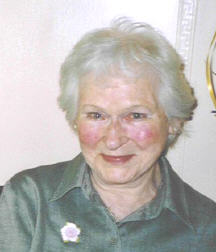 The areas
covered were Values, Self-care, and Peace & Positivity in the first module,
and in the second, Compassion, Spiritual Care and Co-operation. During the third module we worked on integrating Love and Power, having Authentic Relationships, and the concepts of Connection, Reflection and Service.
The areas
covered were Values, Self-care, and Peace & Positivity in the first module,
and in the second, Compassion, Spiritual Care and Co-operation. During the third module we worked on integrating Love and Power, having Authentic Relationships, and the concepts of Connection, Reflection and Service.
Modules
We find that
splitting the Programme into modules with gaps in between encourages people to
practice skills and try out different ways of doing things. We then meet up again to share, and
celebrate, and identify the learning from the workplace. This learning is then reinforced and
developed, along with new skills. We’ve
also given email support to everyone all along the way, and continue to do so.
The actual process - The first day
So, in more
detail, to give you a flavour of how the programme worked, let’s go through the
first day when we worked with a group of 12 senior nurses and educators. The first day was about reconnecting with our
values and how we can consciously live from these at work.
Introductions
 Firstly, we
didn’t do introductions in the normal way. We started by pairs talking about
favourite pieces of music, art, and places.
They talked about why they liked them.
This highlighted values that people thought were important. Only then
did the pairs introduce themselves to each other in terms of their roles and
work history. They then introduced each other to the rest of the group. By
doing it this way round participants had already started to see each other as
people first and roles second. It
changed the tone in which each person was introduced to the rest of the group.
Firstly, we
didn’t do introductions in the normal way. We started by pairs talking about
favourite pieces of music, art, and places.
They talked about why they liked them.
This highlighted values that people thought were important. Only then
did the pairs introduce themselves to each other in terms of their roles and
work history. They then introduced each other to the rest of the group. By
doing it this way round participants had already started to see each other as
people first and roles second. It
changed the tone in which each person was introduced to the rest of the group.
Discussions
In small groups
we discussed values that were important to each person to begin to create a
shared vocabulary of values. We then
explored personal work situations that had been handled really well, and worked
out what values had been used to underpin or influence the situation.
Visualisations
We used a
visualisation to remember and experience some of our core values – what they
feel like from within. This reminded
everyone how good it feels.
To help turn
these core values into behaviours, and actions, we remembered people who had
treated us well and inspired us in our work.
We considered what values they had used and how they had been
demonstrated.
We envisioned
an ideal workplace, and in small groups identified the values that are
important in healthcare today. The
groups then designed posters advocating the values that were important for
their own workplaces and discussed how they could take these back to their own
work setting.
As we said,
there was very little input, but a lot of personal reflection and discussion,
with a great emphasis on how we actually do things at work, including time for
some skills development and creativity.
Reflection & sharing
 We thought you
might like to do something from the Conscious Approach to Caring Programme
now. So, if you would like to think of
someone who has inspired you along the way, someone who has treated you well. What qualities do you think they were
expressing? How did they demonstrate
them? If you can talk to another person about your reflections or perhaps jot yourself some notes that would be good. You might also like to remember how you felt when you were working with the person you are describing.
We thought you
might like to do something from the Conscious Approach to Caring Programme
now. So, if you would like to think of
someone who has inspired you along the way, someone who has treated you well. What qualities do you think they were
expressing? How did they demonstrate
them? If you can talk to another person about your reflections or perhaps jot yourself some notes that would be good. You might also like to remember how you felt when you were working with the person you are describing.
How do you feel
now? To take this back to your
workplace you might like to decide on a quality you would like to consciously
express today. What would it
be? (might be the one you have already
identified – or it might be another one) and today just notice the
difference it makes to you and other people as you consciously express that
quality.
The future - rippling out
Now, how are we
expecting Conscious Caring to change the course of healthcare? Well, by a ripple effect. Everyone is different, and there are so many
different settings for healthcare, with many different professions making their
contribution to care. Each will have
different ways of using these concepts.
Some examples of changes
Already, we’ve
seen how the delegates from the St. Patrick’s programme in Cashel have
changed the way they do things in their workplaces. Practically, people spoke
of small changes making big differences.
Sometimes, quite small things, such as putting flowers in a reception
area, being more conscious of the effect of touch and eye contact.
 Several people
said that they had taken courage. This
included a person having the courage to stay silent and not defend her position
in a meeting and then being able to find a positive solution to the
problem. Normally she would have moved
into defend and attack mode. One person
had changed the way she delivered a course, taking a more caring, considered
approach to successfully raise issues with the group. She had changed the content and the way she
delivered the course.
Several people
said that they had taken courage. This
included a person having the courage to stay silent and not defend her position
in a meeting and then being able to find a positive solution to the
problem. Normally she would have moved
into defend and attack mode. One person
had changed the way she delivered a course, taking a more caring, considered
approach to successfully raise issues with the group. She had changed the content and the way she
delivered the course.
Others have
changed the way they deal with their managers, colleagues, or staff, by
consciously using qualities. They have
encouraged others to appreciate their own qualities and strengths. They have inspired others to explore to do
things in a more caring way. They have
conducted themselves differently, and changed their expectations of themselves
and others. E.g. of using qualities to
praise people – “I really liked the way you showed compassion there” instead of
“you handled that really well.”.
Conscious
Caring Rippling out
 These effects
ripple out. People who are treated well
treat others well. Current neuroscience
is showing how infectious the release of serotonin and oxytocin are within a
team. When people see their boss, or
colleagues, expressing certain values and qualities they will tend to do the
same. It is how cultures develop within
a team.
These effects
ripple out. People who are treated well
treat others well. Current neuroscience
is showing how infectious the release of serotonin and oxytocin are within a
team. When people see their boss, or
colleagues, expressing certain values and qualities they will tend to do the
same. It is how cultures develop within
a team.
Good leaders
are able to hold the vision of how they would like patients to be treated so
that patients feel cared for, seen, and valued.
Good leaders are able to integrate love and power so that the right
conditions can be created to achieve their vision, and good leaders are able to
consciously care for themselves with compassion and so care for others with
compassion. Who do we mean by
“Leaders”? Well, all of us. When we work
from our personal humanity, others will follow, and that is what the Conscious
Caring Programme encourages others to do.
What can you do?
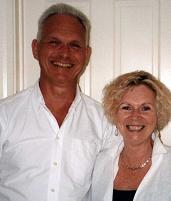 So, what we’ve
talked about is the current situation where caring staff are finding it
difficult to care as well as they would like to because of the pressures and
levels of stress they have. We’ve told
you a little about some of the Conscious Caring training that we’ve done, and
some of the outcomes, in terms of how it changes the way people feel about
themselves, and examples of what they have been able to do differently.
So, what we’ve
talked about is the current situation where caring staff are finding it
difficult to care as well as they would like to because of the pressures and
levels of stress they have. We’ve told
you a little about some of the Conscious Caring training that we’ve done, and
some of the outcomes, in terms of how it changes the way people feel about
themselves, and examples of what they have been able to do differently.
So, what can
you do to consciously care? We’d like
you to remember who you really are, why you chose your profession, and to consciously
be true to yourself at work. Then, you
can influence the way conscious caring ripples out. You can influence how it spreads through your
workplace, as more people realise that they can make a difference to the health
service, as they consciously care for themselves, their colleagues, and their
patients.
Here are some more comments from delegates to inspire you:
· I hadn’t realised that the everyday things I did and practised had so many values.
· I now have permission to restore myself.
· I can now have conversations about spirituality with my colleagues.
· It has been energising, informative and very powerful.
· Wonderful and exciting days.
· Your professional and gentle facilitation and presence is very impressive and inspiring.
· I felt safe in the group. It was very easy to build relationships and work with others in the group.
· The spirituality fascinated me. It’s in everyday life but I had never seen it.
Integrate Conscious Caring into Your Workplace
If you work in a health service or residential care setting we would be delighted to explore how we could work together to integrate Conscious Caring into your workplace setting. We would be willing to do an initial project with you for only fifty percent of our normal fee as we are passionate about sowing seeds like this to raise the level of compassionate care for both staff and patients everywhere.
If you would like to know more about integrating Conscious Caring into healthcare call us on (44) 01798 872 266, or go to contact us or e-mail info@wisborough.com headed "Conscious Caring"
Back to the top of the page